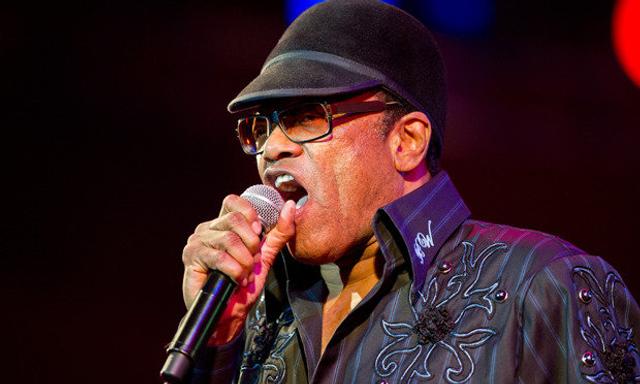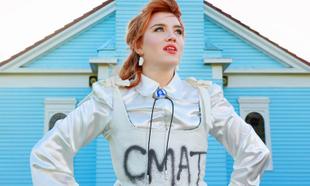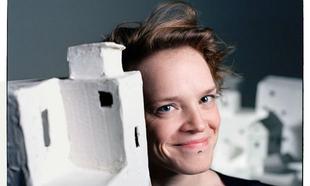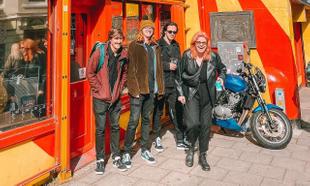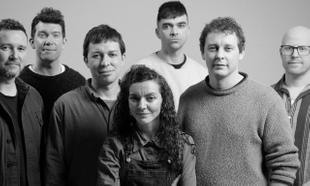Robert Dwayne Womack embarked on a storied musical journey back in the 1950s. Since then, a fluctuating career has witnessed countless highs and lows. As friendships and collaborations with the likes of Sam Cooke, James Brown, Wilson Pickett, Janis Joplin and Jimi Hendrix gave way to personal problems, Womack looked to have reached his nadir. A stagnant career was galvanised in 2010 when Damon Albarn sought Womack's involvement with the Gorillaz, and last year's 27th studio album The Bravest Man in the Universe has cemented his rightful position as revered soul legend. As Bobby Womack arrives in the capital for a special Arthur's Day appearance, he sat down with us to share and reminisce about lost friends, his rediscovery and the essence of soul music.
Interview by Killian Barry
Bobby, thanks very much for sitting down with us today. You're in Dublin to perform as part of the Arthur's Day festivities. The dynamic of that is something a little bit different. Are you looking forward to a more intimate set-up?
I'm looking forward to things happening , like the festival. I've heard talk about it and to be a part of it really goes to my head (laughs).
You played the Olympia Theatre here in Dublin during the summer which marked your first appearance since you had to pull out of a show last year. Since then, your profile has been on the rise. Have you had time to form much of an impression of Irish audiences?
No, I haven't. Just being a part of it to me is hard to explain. Once you've been out here over 40 years,you feel that you've done it all, you've been a part of everything. I've never done this. And you go everywhere and there's talk about it. People know about Guinness, you know.
Live, there's still a big element of showmanship in your performances. Is that something you set out to achieve?
To me that's natural. I don't think I ever do the same show twice. You know, you walk on stage [and] the spirit is different. Sometimes it's up, sometimes certain songs that you've written, you relive them on stage at that time, but you never know that's gonna happen. I think that's what makes show-business exciting. There's been times I have thought about different artists that I have worked with over the years and I think "boy, this guy is no longer here". This is going on in my mind as I'm performing. It becomes very, very, very spiritual. It's because I've lost a lot of people along the way.
You've always been a great innovator in your music – collaborations, country album – and your most recent work, last year's Bravest Man in the Universe, brought some more contemporary electronic sounds. Does that pose different challenges to you?
It was just different and for me I really needed it. I hadn't gotten out of the business but I wasn't, you know, hungry to record. Not that I was famous, (but) you have to have a certain urge to want to go in the studio and record an album, you got to be on fire. And that fire after so long just had slowed down. All of a sudden I got a call from Damon Albarn with Gorillaz. I tell you, the last time I heard a name like 'Gorillaz' was when the Monkees were out so I didn't even know who Gorillaz was. I had just lost track, not (that I was) trying to. It was my daughter that said "Dad, you gotta record, that's one of the hottest groups around; this is the way you get back". So I said "I'm not trying to get back, I'm just trying to survive with life", you know. They wanted me to come in and cut a single on their new album and they were saying all their albums sell a lot. It was exciting to me when I went to the studio, which was in New York, and they reminded me of the way I used to be. They were straight as an arrow, there wasn't nobody getting high and I said "If I see any of that I'm gone". That changed my life. It turned out to be a positive note. I mean, I felt very comfortable and relaxed and the best of me started to came out.
It's really exposed you to a whole new audience. At this stage in your career, does that feel like a form of validation to you?
Yeah I felt "please don't let me get too old". I ain't got a whole lot of time, you know, and it was uplifting to see a younger generation, a new generation that never had really heard of me. I was being introduced to them by Gorillaz.
I'd be keen to get your brief thoughts on contemporary mainstream hip-hop as an artistic output of the African-American community in the US.
I think all music is good if it's entertaining and if you're saying something constructive. I don't think you should say anything that's negative for a young person to hear. It's because they believe and think that way if you say it that way. You can say a positive (thing) ... and it works. Music is entertainment and that's the bottom line.

Is there still a place then in today's climate for the music you're so highly regarded for, classic soul/rnb?
I think there will always be. That's because first of all you're dealing with your feelings, true feelings. That's not going to go out of style and that's what soul music is about, you know. And that's why there will always be soul music. There will always be people reaching for a feeling. Sometimes they may not know what that feeling is, but they feel good inside.
You've outlived at this stage virtually all of your well-known associates and collaborators and you've had your own recent personal struggles with illness, yet today and certainly here in Ireland your name and your material is more widely known than ever. How does this chapter of your career, and you touched on it before, fit in with what's gone before?
It just makes you look at life a lot more seriously and you feel blessed to still be here and able to see what's going on with a new generation and new music, a new approach. I don't feel that (today's music) has the depth that some of the super artists left for us (in their) lyrics. The Beatles, the guys like that, you know, they'll be forever.
With all this newness that you mention, are you still 'the Poet'?
I think I would put that in there (laughs), because you know what, the truth don't go out of style. I always try to sing something (because) twenty years later, people still falling in love, falling out of love, ain't getting it straight.
Apart from being a legend in your own right, you've worked with so many illustrious, famous names. Looking back now, are there a few collaborations that you're especially proud of?
You know what, I did an interview on Wilson Pickett. And here's a guy that I never mention, I don't know why, but he gave me my first break in the music business. He went to Atlantic Records, and Pickett was real hot during that time. He asked them to give Bobby a break and record him. They didn't, but he kept saying let me record your songs so every time they see my name, your name will be right underneath as the writer, you know. And that worked, and that way people started calling me to record and calling me to play on their album. I love music and I love what I do so when they called I was always ready to answer.
And your friendships with the likes of Wilson Pickett or, say, Janis Joplin must have thrown up all sorts of stories as well.
Well, Janis Joplin was a beautiful soul. I just got to know her for a short time. She called me and said the same thing, that I would like to record one of your songs. I didn't think it was Janis Joplin. How'd she know how to reach me? Anyway, she said come on down to the studio. I had just bought a Mercedes Benz at the time and she had a Porsche. I don't know how we ended up sitting in my car. She said "Whose car is this?", (and) I said "I just purchased this". So she starts singing "Dear Lord, won't you buy me a Mercedes Benz, ..." and she was hammering on the dashboard. Out of nowhere she said "Let's go back in the studio, cut this", and she said "You play guitar". And that's the way we did it. Ten years or so (ago), I heard it on a commerical. It was really touching and shocking because I went back to the day she created the song.
Another story I enjoyed was how you came to pick up the guitar in the first place. Would you mind regaling us with that one again?
Yeah, somebody gave my father a guitar. He used to cut hair to make extra money. A guy came in and gave him this guitar and said "cut my hair for six weeks" or something, you know. That was the deal. (He said), "You can have this guitar". So my father first said "Hey, don't nobody touch this guitar, don't even look at it", because it was the prettiest piece of furniture we had in the house. He had to go to work every morning and when he'd go to work I would pick up the guitar. And so I learned. What happened one day, I was playing and broke a string. Scared me to death because I knew I had broke it and I knew he was gonna come home and ask for his guitar. He could only play it for 15, 20 minutes because he would fall asleep. He was playing the guitar, (at first) he didn't even realise the string was broke. He said, "who broke the string", so my brothers all pointed – "Bob". "If you can't play it", he said, "I'm gonna whup you in to the middle of next week". I was thinking that's a long time to be getting a whupping. He gave me the guitar and I knew that the whupping was coming next. So my idea was to impress him as much as I could. And I think I played every kind of music. I even became Jimi Hendrix with the guitar (motioning some frantic fretwork up at chin level). And he was shocked. He was shocked. (My brothers) said he's been practising every day, you know. So at that point, he got instruments for everybody and everybody came out "oh, I can play too".
Just to finish, any indication what the lucky few in attendance wherever you're playing (on Arthur's Day) can expect from you?
You know, I've written some songs and I had a few ideas. Doing the tour with the Gorillaz I came up with about 10-12 songs. Good songs. I thought they were good. I was inspired from travelling with them and getting a whole new outlook on the music scene. I cut something with Stevie Wonder. I cut something with Rod Stewart. I cut something with Ronnie Isley of the Isley Brothers. Just people I always wanted to sing with, I got a chance to do that. So I didn't know what to do with that album when I was there, but I like to hear different styles together. Singing the same song, but approaching it different. So that's an idea I still would like to get out to people.
